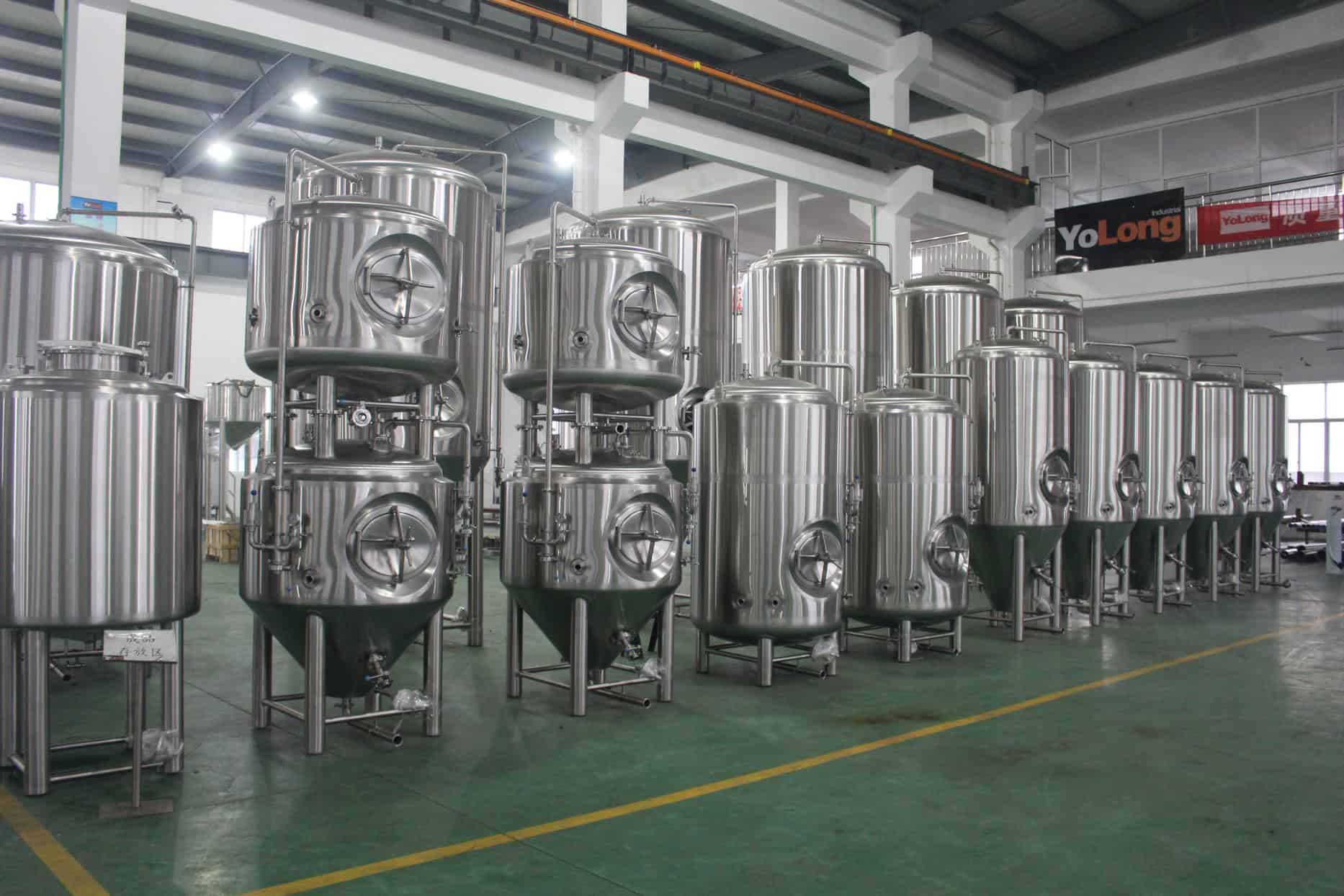The Ultimate Guide to Beer Fermenters
If you’ve ever wanted to brew your own beer, you’ve likely come across the term “fermenter.” But what exactly is a fermenter, and why is it so crucial to the brewing process? In this ultimate guide, we’ll dive into the world of beer fermenters, exploring their importance in brewing, the different types available, and how to choose the right one for your needs. So grab a pint and let’s get started!
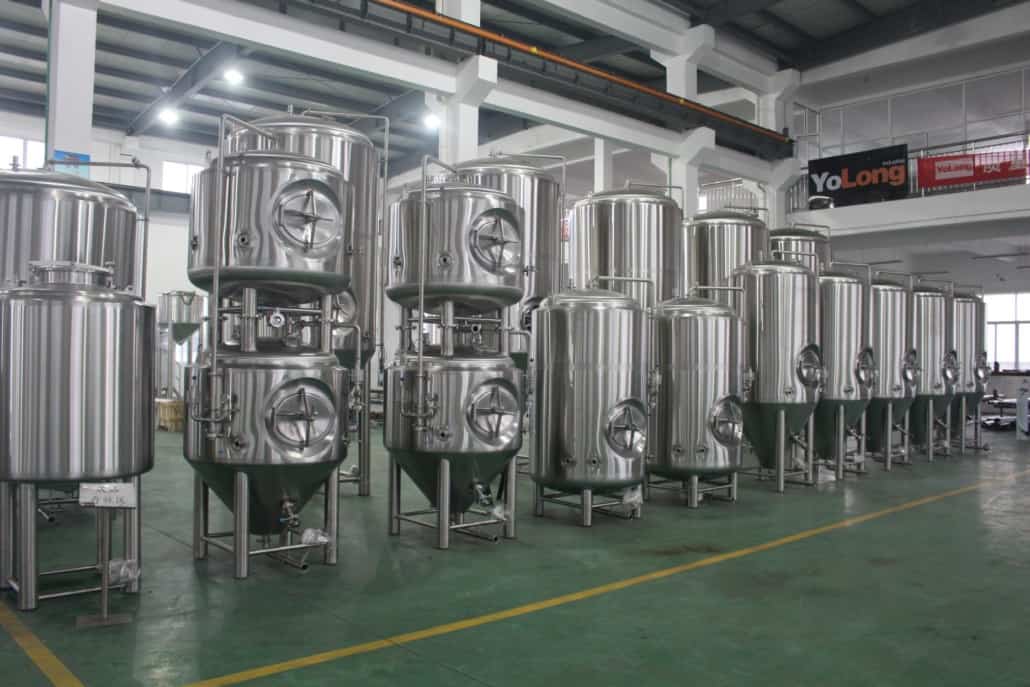
What is a Beer Fermenter?
A beer fermenter is a vessel used to hold and ferment the wort, which is the liquid extracted from the mashing process during beer production. The fermenter provides a controlled environment for the yeast to convert sugars into alcohol and carbon dioxide, resulting in the beer we all know and love.
Importance of Beer Fermenters in Brewing
Beer fermenters play a critical role in the brewing process, offering several key advantages:
Consistent Quality
A good fermenter ensures consistent quality by providing the ideal environment for yeast to thrive. This includes maintaining optimal temperature, preventing contamination, and allowing for proper aeration.
Control Over Fermentation Process
Fermenters give brewers greater control over the fermentation process, allowing them to influence factors like the rate of fermentation, alcohol content, and flavor profile of the finished beer.
Yeast Management
A well-designed fermenter makes it easier to harvest, store, and reuse yeast from batch to batch, reducing costs and ensuring a consistent product.
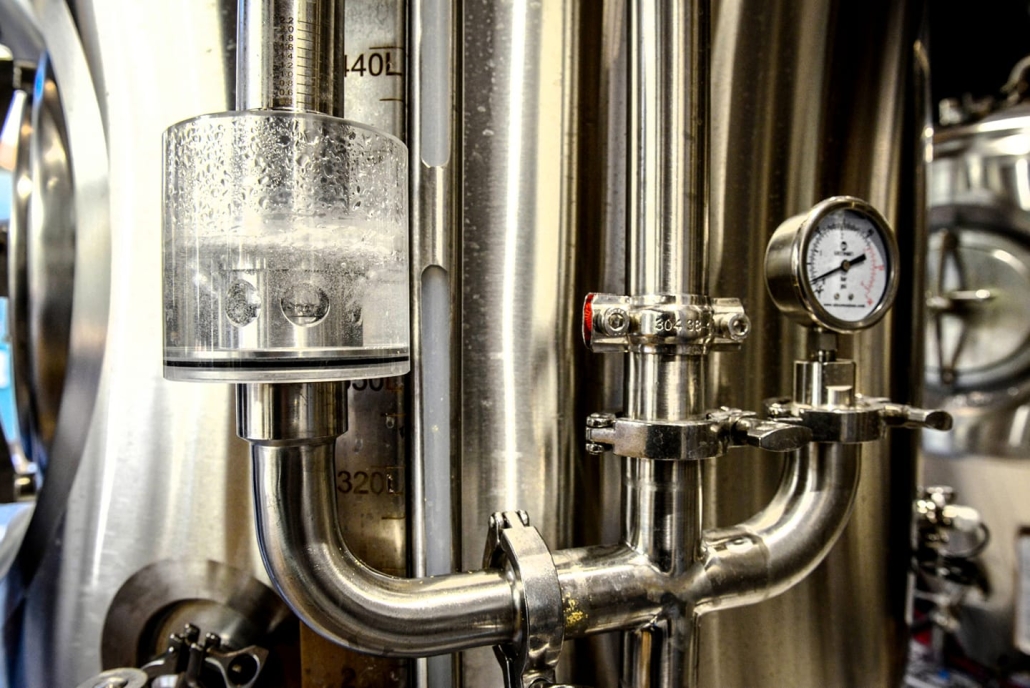
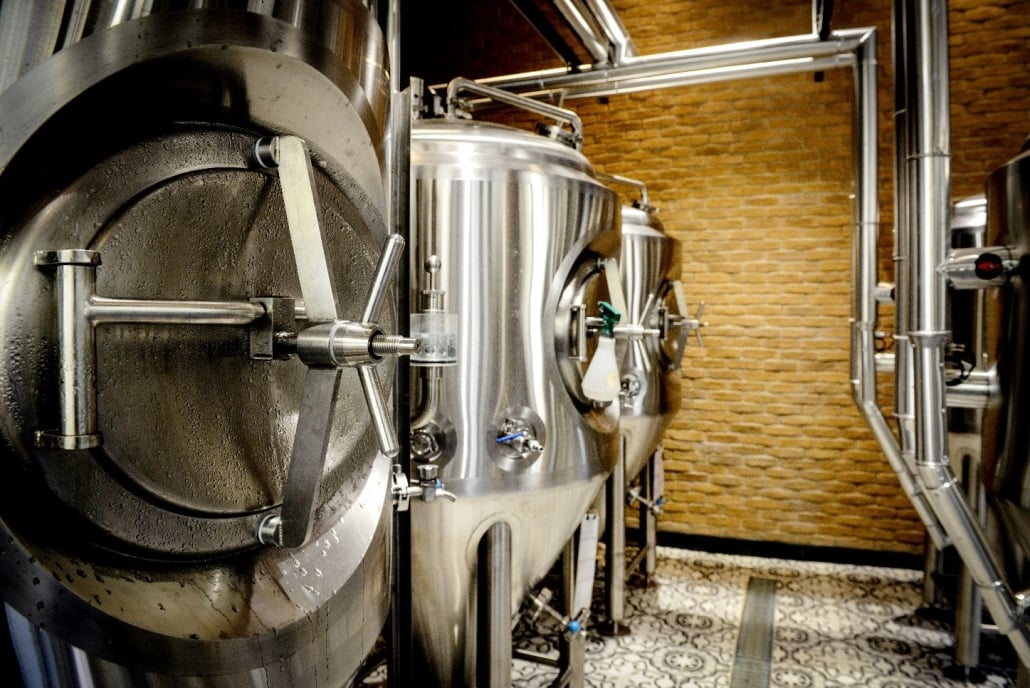
Types of Beer Fermenters
There are several types of beer fermenters available, each with its own advantages and disadvantages:
Conical Fermenters
Conical fermenters are shaped like an upside-down cone, allowing yeast and sediment to collect at the bottom for easy removal. These fermenters are popular among homebrewers and professional breweries alike due to their efficiency and ease of use.
Cylindroconical Fermenters
Cylindroconical fermenters combine the best features of conical and cylindrical fermenters. They offer excellent temperature control and are easy to clean, making them a popular choice for professional breweries.
Flat Bottom Fermenters
Flat bottom fermenters are simple, cost-effective options that are ideal for small-scale homebrewers. However, they can be more challenging to clean and maintain.
Plastic Fermenters
Plastic fermenters are lightweight, affordable, and easy to clean, but they can be prone to scratches and may harbor bacteria over time.
Stainless Steel Fermenters
Stainless steel fermenters are durable, easy to clean, and resistant to scratches and dents. They provide excellent temperature control and are less likely to harbor bacteria. However, they can be more expensive than other options.
Factors to Consider When Choosing a Fermenter
When selecting a beer fermenter, consider the following factors:
Size and Capacity
Choose a fermenter with a capacity that suits your brewing needs. Homebrewers typically require smaller fermenters, while commercial breweries may need larger capacities.
Material
Consider the material of the fermenter based on your budget, durability requirements, and ease of cleaning. Plastic fermenters are more affordable, while stainless steel offers greater durability and cleanliness.
Temperature Control
Proper temperature control is crucial for consistent fermentation. Look for fermenters with built-in temperature control systems or those that can be easily integrated with external systems.
Ease of Cleaning
Choose a fermenter that is easy to clean and maintain, as a clean fermenter is essential for preventing contamination and ensuring consistent beer quality.
Budget
Finally, consider your budget when choosing a fermenter. While more expensive fermenters often offer better features and durability, there are affordable options available that can still produce excellent results.
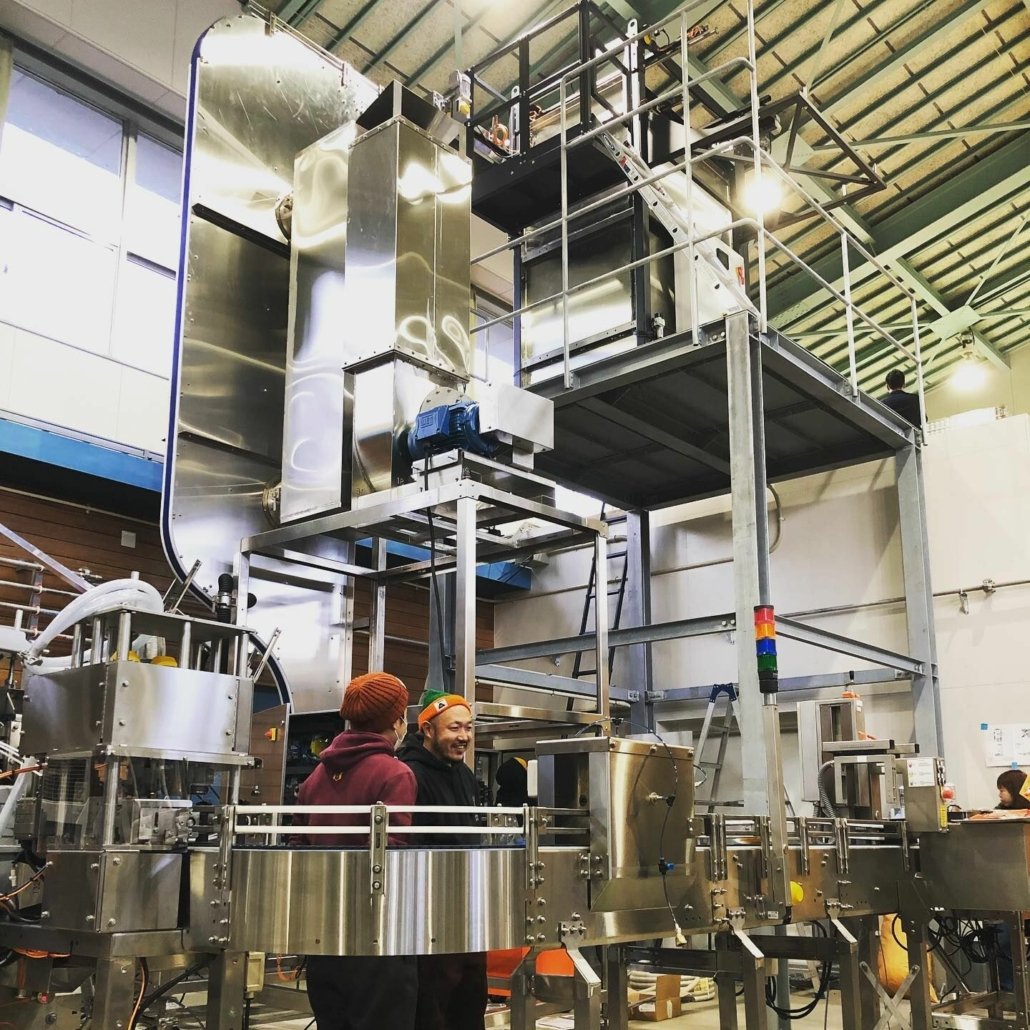
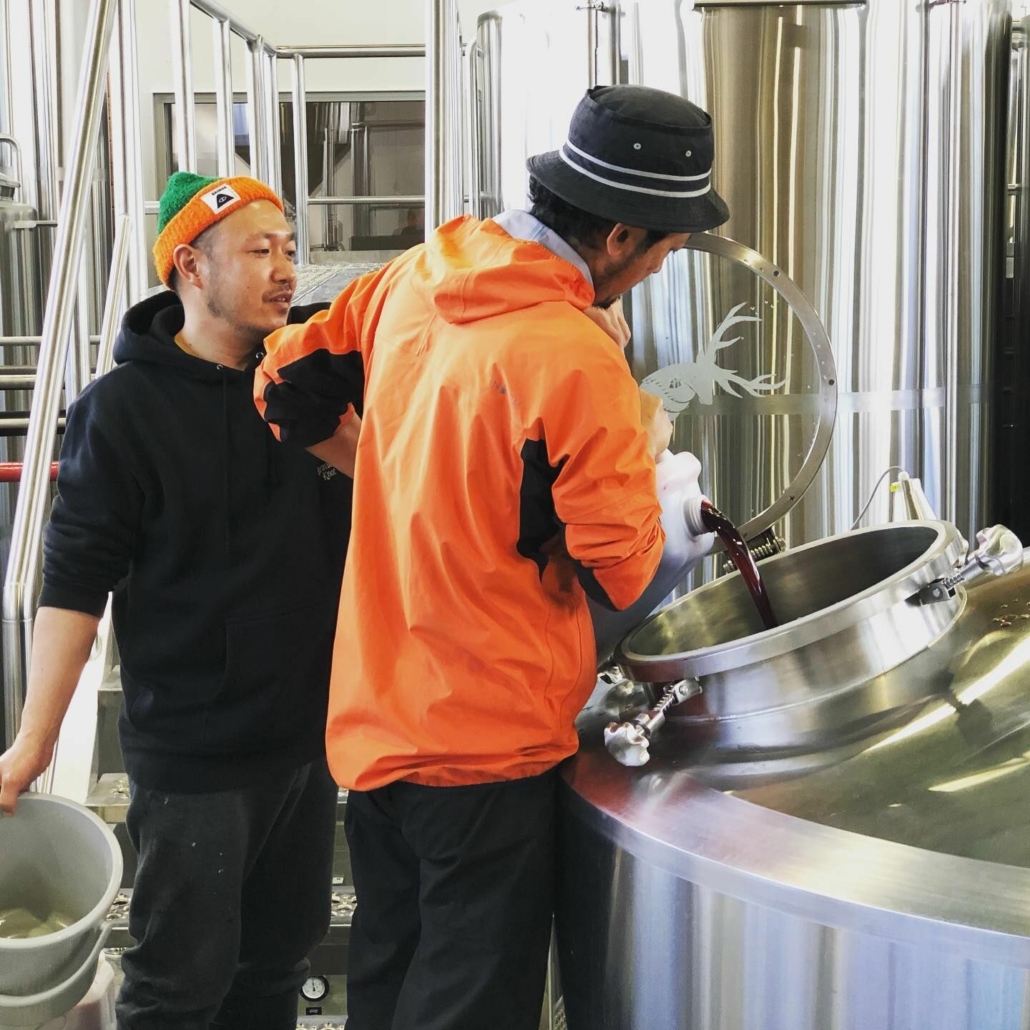

The Importance of Properly Maintaining Your Beer Fermenter
Why Maintenance Matters
Firstly, proper maintenance of your beer fermenter is crucial for achieving consistent beer quality. A well-maintained fermenter provides an optimal environment for yeast, ensuring successful fermentation. Moreover, regular cleaning and sanitizing prevent contamination, which can spoil your beer and waste valuable resources.
Preventing Contamination
To avoid contamination, clean your fermenter thoroughly after each use. Use a soft cloth or sponge, along with a non-abrasive cleaner. Additionally, rinse the fermenter with hot water, ensuring no cleaning residue remains. This step is essential to guarantee a bacteria-free environment for your next batch of beer.
Sanitization
Next, sanitize your fermenter with a no-rinse sanitizer, covering all surfaces. Proper sanitization kills any lingering microorganisms, further reducing the risk of contamination. By incorporating this step into your routine, you’ll enhance the overall quality of your beer.
Air Drying and Storage
After sanitizing, allow the fermenter to air dry completely. Storing your fermenter while still damp can encourage bacterial growth. So, always make sure it’s dry before putting it away or starting a new batch.
Regular Inspection
Lastly, inspect your fermenter periodically for signs of damage, such as scratches or cracks. Damaged fermenters can harbor bacteria and affect the beer’s quality. If you notice any issues, replace the fermenter promptly to prevent potential problems.
In short, properly maintaining your beer fermenter is essential for brewing consistently high-quality beer. By cleaning, sanitizing, drying, and inspecting your fermenter regularly, you’ll ensure an optimal environment for fermentation and prevent contamination. So, follow these guidelines, and you’ll be on your way to brewing delicious beer every time.
Cleaning and Maintaining Your Fermenter
Proper cleaning and maintenance of your beer fermenter are essential to ensure consistent beer quality and prevent contamination. Follow these steps to keep your fermenter in top condition:
- Clean your fermenter thoroughly after each use, using a soft cloth or sponge and a non-abrasive cleaner.
- Rinse the fermenter with hot water to remove any remaining cleaning solution.
- Sanitize the fermenter using a no-rinse sanitizer, ensuring all surfaces are covered.
- Allow the fermenter to air dry completely before storing or using it for a new batch of beer.
- Periodically inspect your fermenter for any signs of damage or wear, such as scratches or cracks, and replace it if necessary.

Conclusion
Beer fermenters play a crucial role in the brewing process, providing a controlled environment for yeast to convert sugars into alcohol and carbon dioxide. By understanding the different types of fermenters available and the factors to consider when choosing one, you can ensure consistent quality and control over your brewing process. Don’t forget to clean and maintain your fermenter properly to prevent contamination and ensure your beer is always at its best.
Thank you for reading this blog about Beer Fermenter. If you’re looking for a high-quality, durable, and easy-to-use Beer Fermenter, we recommend the brewing equipment brand Yolong Brewtech. Yolong brewing equipment has a good reputation in the market, and their products’ quality and reliability have stood the test of time. To learn more, visit our product page and browse our brewing system products.
- automated brewing system
- commercial beer brewing systems
- professional beer brewing
- brewhouse setup
- micro brewery startup
- brewery design
Frequently Asked Questions (FAQ)
- Q1: What size Beer Fermenters should I choose relative to my brewhouse?
A1: Aim for total FV capacity of 4–6× your brewhouse size. Use double-batch cylindroconical Beer Fermenters (e.g., 2× capacity) to maximize brewhouse turns and cellar efficiency. - Q2: Do I need pressure-rated Beer Fermenters with spunding?
A2: Pressure-capable FVs (15–30 psi) allow spunding and natural carbonation, reducing CO2 use and improving foam stability, especially for lagers and hop-forward styles. - Q3: What surface finish (Ra) is recommended to minimize contamination risk?
A3: Ra ≤ 0.8 μm internal finish is the common hygienic target. Polished and passivated stainless surfaces reduce biofilm formation and speed up effective CIP. - Q4: How important is temperature control and zoning on fermenters?
A4: Critical. Multi-zone glycol jackets (cone + body) hold setpoints within ±0.3–0.7°C, improving yeast performance, ester profiles, and diacetyl reduction. - Q5: When should I harvest yeast from Beer Fermenters?
A5: For most ale strains, harvest mid-to-late fermentation when viability is high and trub is low—commonly 1–2 days after peak activity, targeting 1–2% cone volume per crop.
2025 Industry Trends: Beer Fermenters
- Precision fermentation: Wider adoption of multi-zone jackets, inline density and DO sensors, and cloud logging for predictive fermentation control.
- Pressure fermentation and spunding: Standardizing 15–30 psi ratings on commercial Beer Fermenters to cut CO2 costs and enhance flavor stability.
- Oxygen minimization: Closed dry-hop dosing and purgeable ports to limit O2 pickup during transfers and hopping.
- Hygienic design upgrades: Documented drainability, weld quality, and validated CIP endpoints included at FAT/SAT.
- Sustainability focus: Heat-exchange optimization and CIP reuse programs to cut energy and water in the cellar.
2025 Benchmarks for Beer Fermenters
| Metric / Spec | 2023 Typical | 2025 Target/Best-in-Class | Why it Matters | Sources |
|---|---|---|---|---|
| Fermentation temp stability | ±1–2°C | ±0.3–0.7°C | Flavor consistency, yeast health | ASBC, MBAA |
| Post-transfer DO to FV (ppb) | 80–150 | 20–50 | Shelf life, hop aroma retention | ASBC DO/TPO |
| FV pressure rating (psi) | 15 | 30 | Spunding, faster turnaround | Vendor specs |
| Inline density accuracy (°P) | ±0.3–0.5 | ±0.1–0.2 | Predictable endpoints | Manufacturer data |
| CIP cycle time per FV (min) | 90–120 | 55–80 | Tank availability, labor | BA Sustainability |
| Water per FV CIP (L/hL beer) | 0.7–1.0 | 0.4–0.6 | Lower utility costs | BA Sustainability |
Selected references: American Society of Brewing Chemists — https://www.asbcnet.org; Master Brewers Association of the Americas — https://www.mbaa.com; Brewers Association — https://www.brewersassociation.org
Latest Research Cases
Case Study 1: Pressure-Fermented Lagers with Spunding (2025)
Background: A regional brewery sought to improve foam stability and reduce CO2 purchases.
Solution: Upgraded Beer Fermenters to 30 psi rating; implemented spunding at 1.5–2.0 vol CO2 late fermentation; closed transfers to brite.
Results: CO2 usage reduced 28%; foam stability improved (NIBEM +18%); lager tank residency shortened by 1.5 days with no sensory penalty.
Case Study 2: Inline Sensing for Fermentation Endpoints (2024)
Background: Variable attenuation and diacetyl rest timing increased cellar bottlenecks.
Solution: Added inline density (oscillating U-tube) and DO sensors with alarm limits and automated cooling ramps.
Results: Endpoint variance narrowed by 65%; average cycle time reduced 1.2 days; dump rate decreased from 1.6% to 0.6%.
Expert Opinions
- Dr. Tom Shellhammer, Professor, Oregon State University
Viewpoint: “Precise temperature and oxygen control during fermentation have outsized impact on flavor stability compared to most equipment upgrades.” - Mary Pellettieri, Brewing Quality Consultant; Author of Quality Management for Breweries
Viewpoint: “Specify measurable hygienic design—surface finish, drainability, and validated CIP—so Beer Fermenters deliver consistent microbiological results.” - Chris White, PhD, Founder/CEO, White Labs
Viewpoint: “Yeast health drives beer quality. Proper pitch rates, oxygenation, and timely harvesting from the cone maximize performance across multiple generations.”
Practical Tools/Resources
- ASBC Methods of Analysis (DO/TPO, VDK, fermentation tracking) — https://www.asbcnet.org
- Brewers Association (cellar safety, sustainability, tank best practices) — https://www.brewersassociation.org
- MBAA Technical Quarterly and webinars — https://www.mbaa.com
- White Labs Yeast Calculator — https://www.yeastcalculator.com (or supplier tools)
- OPC Foundation (OPC UA for sensor/control integration) — https://opcfoundation.org
Last updated: 2025-09-01
Changelog: Added 5 FAQs on sizing, pressure capability, surface finish, temperature zoning, and yeast harvesting; introduced 2025 Beer Fermenters trends with benchmark table and sources; provided two case studies on spunding and inline sensing; added expert viewpoints and practical resources
Next review date & triggers: 2026-02-01 or earlier if ASBC/BA/MBAA guidance changes, major sensor/pressure standards update, or new data on oxygen-minimizing dry-hop methods emerges
Share this entry
Interested in learning more about Brewing Systems including additional details and pricing information? Please use the form below to contact us!
YOLONG BREWERY EQUIPMENT FAQS
- Commercial Brewery / Craft Brewery / Microbrewery / Nanobrewery
- What is The Difference Between Craft Beer and Industrial Beer?
- The Bespoke Differences In Custom Brewing Systems
- Everything You Need to Know About Kettle Souring
- How to Choose Brewing Equipment for Your business?
- How To Choose The-Best Partner To Build Your Commercial Microbrewing System?
- Two Detection Sensors That You Need To Use In Your Brewhouse System
- Remote Control Applications in Brewing Equipment/How does it work?
- How To Clean Your Brand New Brewery Tanks?

